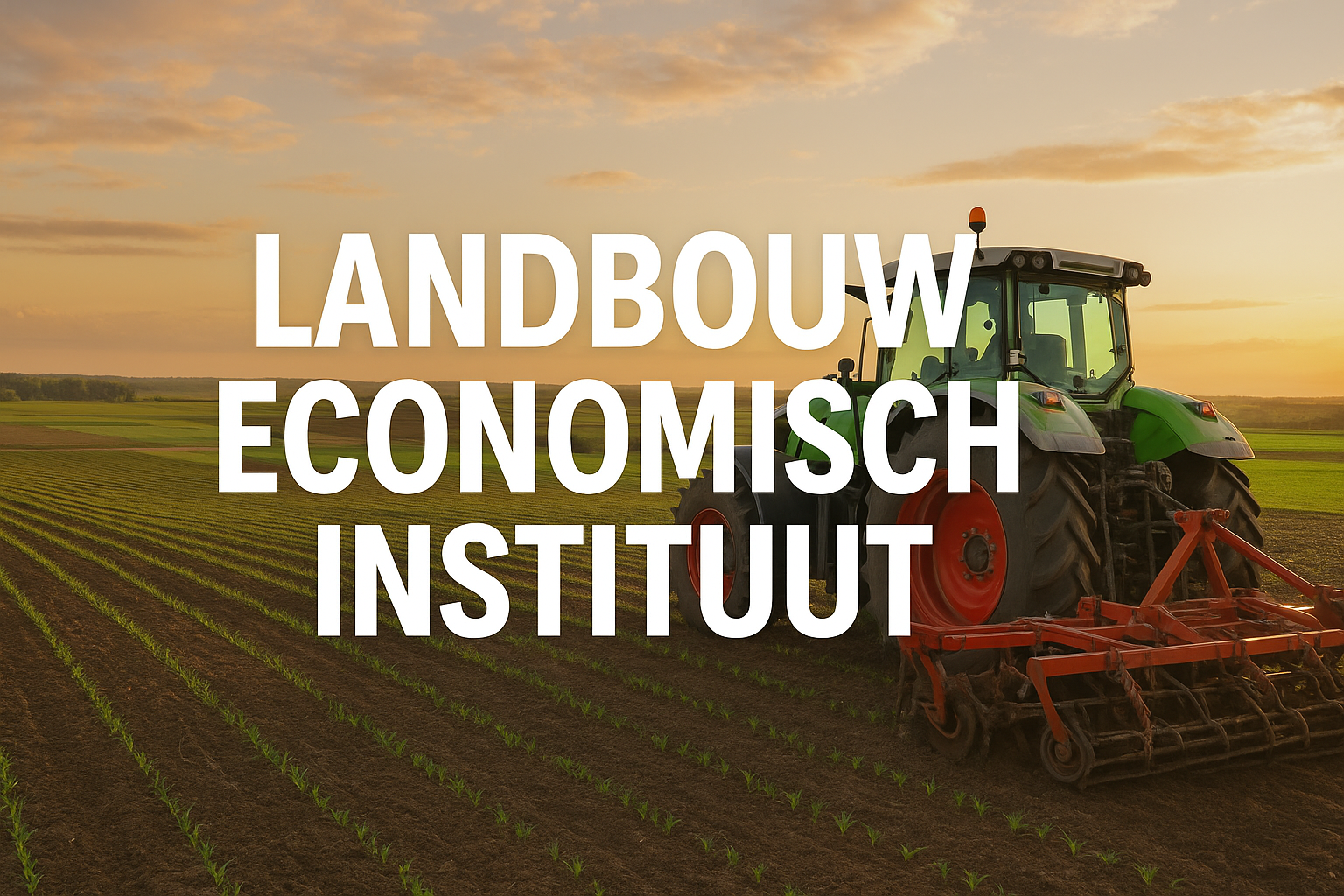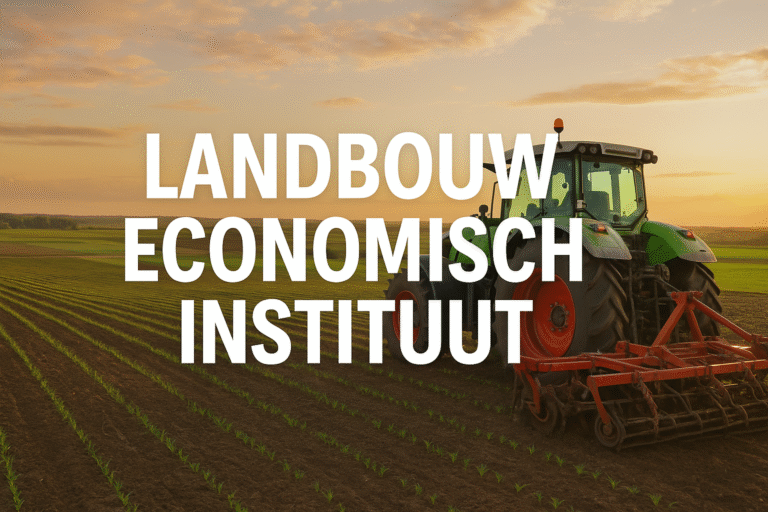
Agriculture is the backbone of every nation’s economy and the foundation of global food security. As the world faces challenges like climate change, market volatility, and population growth, the need for informed research and data-driven agricultural policies has become more important than ever. In this context, the landbouw economisch instituut plays a central role in providing valuable insights that support farmers, policymakers, and businesses in making sustainable and strategic decisions for the agricultural sector.
What Is the Landbouw Economisch Instituut?
The landbouw economisch instituut, often translated as the Agricultural Economics Institute, is a research organization focused on the economic aspects of agriculture and rural development. It studies how agricultural production, trade, policy, and environmental issues interact, shaping the overall performance of the farming industry. By combining scientific research with economic analysis, the institute helps bridge the gap between theory and practice, ensuring that agricultural growth remains sustainable and competitive.
This institute’s work is not limited to economic theory alone. It also plays a crucial role in monitoring trends in food production, market prices, and the global supply chain. The findings produced by the landbouw economisch instituut are often used by governments to design effective agricultural policies, by farmers to make better business decisions, and by researchers to develop innovative solutions for rural economies.
The History and Evolution of the Landbouw Economisch Instituut
The landbouw economisch instituut has a long and respected history in agricultural research. Founded to study the economic foundations of farming, the institute has evolved alongside technological advancements and global market changes. In the early years, its focus was primarily on understanding local agricultural practices and helping farmers increase productivity. Over time, as agriculture became more globalized, the institute expanded its research scope to include international trade, sustainability, and rural development.
Today, the landbouw economisch instituut works closely with universities, government ministries, and private organizations to collect and analyze data on a wide range of topics. These include food security, resource management, farm economics, and agricultural innovation. Its commitment to evidence-based research has made it one of the most trusted sources of agricultural data and analysis in Europe and beyond.
Core Functions and Areas of Research
The work of the landbouw economisch instituut can be divided into several key areas, each contributing to the broader understanding of agricultural economics.
Agricultural Policy and Economic Analysis
One of the primary roles of the institute is to study how agricultural policies affect farmers, consumers, and the environment. It evaluates the impact of subsidies, trade regulations, and environmental policies to determine how they influence the agricultural market. Through detailed modeling and simulations, the landbouw economisch instituut helps policymakers design balanced and effective regulations that promote sustainable growth while protecting farmers’ livelihoods.
Market and Price Monitoring
Agricultural markets are influenced by numerous factors such as weather, global demand, and policy changes. The landbouw economisch instituut monitors price fluctuations and market trends to provide timely information for both farmers and businesses. This helps prevent economic shocks, ensures fair trade, and supports long-term stability in the agricultural sector. By studying global commodity markets, the institute also contributes to understanding how international forces affect local farming economies.
Sustainability and Environmental Research
Sustainability has become a core focus of modern agriculture. The landbouw economisch instituut actively researches the relationship between agricultural production and environmental impact. It explores how to balance food production with resource conservation, reduce carbon emissions, and minimize waste. By developing models of sustainable farming practices, the institute provides practical recommendations for achieving a greener and more efficient agricultural system.
Rural Development and Social Economics
Beyond production and trade, the landbouw economisch instituut also focuses on the social and economic well-being of rural communities. Its research on rural employment, income distribution, and quality of life helps governments create policies that promote inclusive growth. The institute recognizes that thriving rural areas are essential for maintaining agricultural productivity and cultural heritage.
The Importance of Data and Innovation
In today’s data-driven world, the landbouw economisch instituut relies heavily on advanced data analytics and technology to conduct its research. Through satellite data, artificial intelligence, and big data analysis, it can predict agricultural trends, forecast yields, and analyze economic performance more accurately than ever before. These innovations allow the institute to provide real-time insights that are essential for farmers and policymakers alike.
For instance, by using predictive models, the landbouw economisch instituut can estimate the potential impact of climate change on crop yields or calculate how new trade agreements might affect export revenues. This kind of foresight is invaluable for creating strategies that keep agriculture resilient and adaptable in an uncertain global market.
Collaboration with Government and Industry
The landbouw economisch instituut does not work in isolation. It collaborates with government bodies, agricultural organizations, and private companies to ensure that its research translates into real-world impact. Policymakers depend on the institute’s reports when designing national agricultural strategies or negotiating international trade agreements. Farmers and agribusinesses also benefit from the institute’s practical recommendations on how to improve efficiency, manage risks, and adopt sustainable methods.
Through workshops, publications, and policy consultations, the landbouw economisch instituut ensures that its findings reach the people who need them most. This close collaboration between science, policy, and practice strengthens the agricultural sector and fosters innovation.
The Future of the Landbouw Economisch Instituut
As global challenges evolve, the landbouw economisch instituut continues to adapt its focus and methods. The institute is increasingly involved in addressing emerging issues such as digital transformation, precision agriculture, and food security under climate stress. It is also exploring how new technologies, such as drones and smart sensors, can revolutionize farming while maintaining economic and environmental balance.
Another growing area of interest is the circular economy in agriculture. The landbouw economisch instituut studies how waste from one production process can become a valuable resource for another, reducing environmental impact and improving efficiency. This innovative approach aligns with global sustainability goals and represents a major step toward a greener agricultural future.
Why the Landbouw Economisch Instituut Matters
The value of the landbouw economisch instituut lies in its ability to turn complex data into actionable knowledge. In a world where agriculture must feed more people using fewer resources, the institute’s insights are indispensable. Its economic analyses help policymakers make fair and sustainable decisions, its research supports farmers in improving productivity, and its guidance ensures that agricultural development does not come at the expense of the environment.
By combining academic excellence with real-world relevance, the landbouw economisch instituut acts as a bridge between science and society. It ensures that agriculture remains not only profitable but also sustainable and socially responsible.
Read also: TubeSeferi: The Future of Smart and Seamless Urban Travel
Conclusion
The landbouw economisch instituut stands as a pillar of agricultural innovation and economic research. Its work influences the direction of national policies, supports rural communities, and promotes a balanced relationship between agriculture and the environment. As the world faces increasing economic and ecological challenges, the institute’s research will continue to guide the agricultural sector toward a future that is both prosperous and sustainable.
In essence, the landbouw economisch instituut is much more than a research body—it is a driving force for knowledge, progress, and resilience in the global agricultural landscape.



